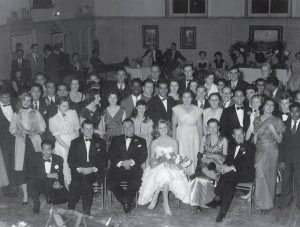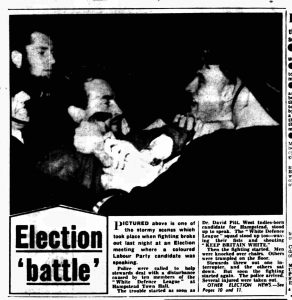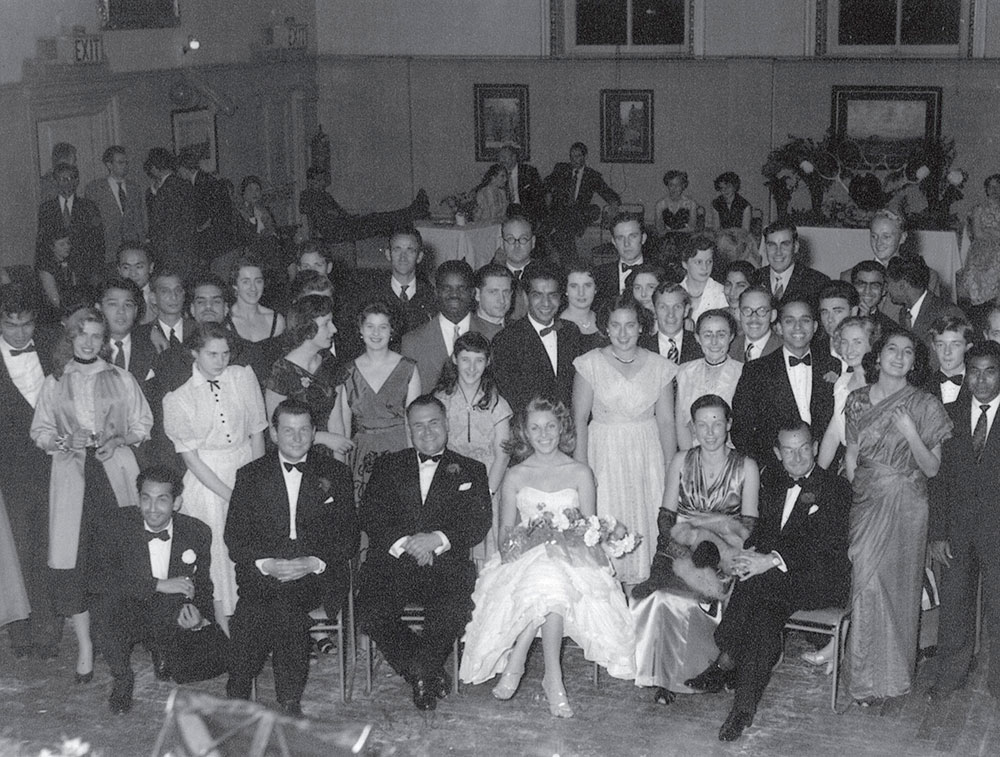 The Old Town Hall has been the focus of a number of exciting events throughout its 140 year history, from tea dances and balls, including the inaugural ball of the London Nigerian Women’s Association in the 1950s; a series of avant garde fancy dress balls arranged by the Hampstead Arts Society, with a Pathe news reel of the 1951 masked ball showing a bare-chested man wearing tights and glittery eye makeup; and, in 1971, a Gay Liberation Front disco (charging 50p entry).
The Old Town Hall has been the focus of a number of exciting events throughout its 140 year history, from tea dances and balls, including the inaugural ball of the London Nigerian Women’s Association in the 1950s; a series of avant garde fancy dress balls arranged by the Hampstead Arts Society, with a Pathe news reel of the 1951 masked ball showing a bare-chested man wearing tights and glittery eye makeup; and, in 1971, a Gay Liberation Front disco (charging 50p entry).
The Old Town Hall has hosted countless musicians, with the band that became Madness playing an early concert here and the Pogues using the building in January 1985 to stage a benefit gig for the Miners struggle.
As well as the seat of council, the Hall has seen radical political action: in 1913 Emmeline Pankhurst gave an impassioned speech for the suffragette movement here, the content of which survives in the National Archives today because an undercover policeman in attendance took covert notes and reported them back to his superiors.
In the 1930s, Belsize Park was sadly a centre of Fascist activity, which was well resisted by a number of co-operating community groups;so much so that when Lord Haw Haw and Mosley spoke at the Town hall during that decade, their meetings were repeatedly protested, with one 1938 event seeing large numbers of women arrested and reports of ‘hand to hand fighting’.
 In the 1959 General Election, the great anti-racist campaigner David Pitt (later Lord Pitt, Baron of Hampstead) stood for Labour here, delivering a inspiring speech for racial equality here on the steps of the Town Hall, despite being heckled throughout by the National Front.
In the 1959 General Election, the great anti-racist campaigner David Pitt (later Lord Pitt, Baron of Hampstead) stood for Labour here, delivering a inspiring speech for racial equality here on the steps of the Town Hall, despite being heckled throughout by the National Front.
During the Second World War, the Town Hall became a North London centre of Air Raid Precautions, with its panoramic view over London proving indispensible in locating where bombs where dropping and directing emergency relief there with hitherto unachievable accuracy. The lookout and the phone centre (which took over 600 calls during the War) was manned 24 hours a day by local volunteers, including the famous Jamaican writer and feminist Una Marson (who was also the first black producer at the BBC) who worked here as an air raid warden ‘in her spare time’. The Town Hall itself took three direct hits during the War, with the campanile (bell) tower being partially destroyed as a result.
As a civic centre, the Hall was used to register thousands of births and deaths and of course acted as a marriage venue, with the superstar ‘the One, the Only, the Beloved Queen of Music halls’ Marie Lloyd marrying here in 1907. Her funeral in Hampstead in 1922 attracted 100,000 mourners, and super-fan TS Eliot declared he wouldn’t socialise for two months because he was grieving. Eliot himself married his first wife Vivienne Haigh Wood here in 1915. Other people wed here include Cleo Laine, Dudley Moore, Lulu and the sculptor Barbara Nicolson. On screen, the wedding in Georgy Girl was filmed here, as was a scene from Four Weddings and a Funeral.
